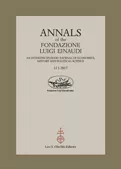The aim of the article is to analyse the League of Nations as an attempt to formulate the British hegemonic role in the European order by some ‘public historians’, in particular by some scholars who were at the same time part of the academic and of the political elites and who, supported the reform of the British Empire as British Commonwealth and the new liberal international institutions. These intellectuals are Alfred E. Zimmern and Gilbert Murray. The main questions investigated are: the way in which they formulated a theory that justified at the same time the British Empire and the League of Nations, how they legitimated the role of Britain as colonial dominant power, as a hegemonic force in Europe and as a guardian of peace in the world, and finally what kind of universal theory and categories they used in order to keep together the British and Western hegemon role in the global order and the right to self-determination of all nations. The hypothesis of the essay is that, in a critical period, where the old balance of power was challenged and Great Britain’s pivotal position was shattered by European and extra-European powers, the internationalist project by the liberal internationalists seems to be connoted as conservative and innovative at the same time: innovative because it really promoted new methods and instruments for giving publicity and solve the issues of international order; conservative because the order which it supported did not cast doubt on the hegemonic role of the old European colonial powers.



